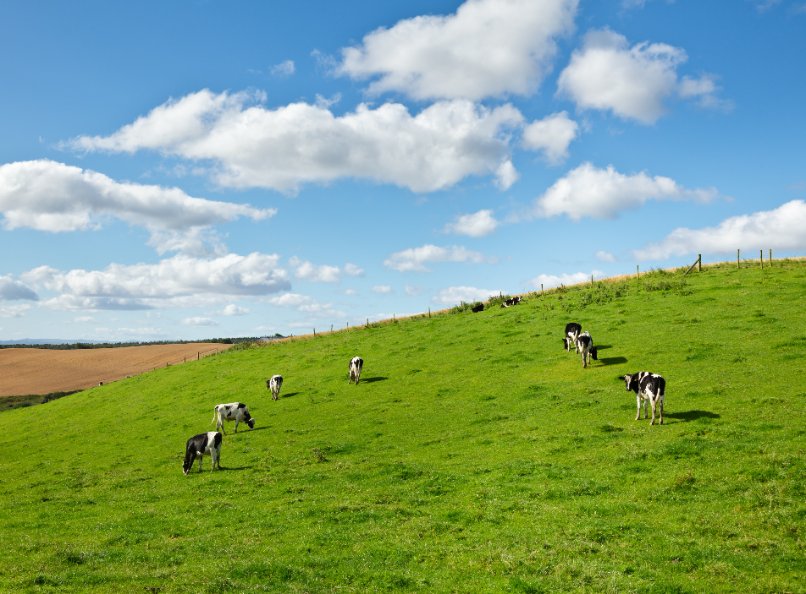Half of future subsidies should protect food security, group says

Half of future farming subsidies should be ‘unconditional’ in order to maintain food security and production in Scotland, an industry group has said.
Scottish Land & Estates (SLE), which represents businesses in the countryside, said the Scottish government must "preserve" food production.
“We need to... maintain food production and that is why 50% of support should be unconditional for active farmers to act as a stability payment," the group said.
It is part of the organisation's #Route2050 ‘On Track for Rural Scotland’ strategy, which was unveiled at the recent Royal Highland Show in Edinburgh.
The document focuses on immediate asks during Scotland's transition period to 2025, and an outline of what rural support could look like beyond.
During the transition period, the report also asks for a reform of how the Rural Payments and Inspections Division engages with farmers and land managers.
On climate change, the government should map "clear and consistent" minimum standards that carbon audit tools must adhere to.
And the biodiversity assessment tool should be introduced "more quickly" to all farmers and land managers in Scotland.
Mark Tennant, chairman of SLE said: “It is critical that we address equally the three key elements of food production, climate change and biodiversity in designing Scotland’s future subsidy support regime, whilst ensuring that the rural economy thrives.
"Uncertainty is making decision-making, investment, and long-term planning incredibly difficult for Scotland’s land managers and rural businesses.
“We need to ensure we preserve a critical mass in Scottish farming and maintain food production and that is why 50% of support should be unconditional for active farmers to act as a stability payment."
Mr Tennant said conditional payments, including capital grant scheme funding, should build on the work of the farmer-led groups and be used to achieve policy objectives, such as emissions reduction.
For the period after 2025, the organisation suggests a base payments in the form of a financial stability payment, based on land classification for those actively farming.
A next level of payments founded on an outcome-focused approach should also be explored, with payments for services such as emissions reductions and resource efficiency.
And a third layer of enhanced conditionality support, including options under an ‘AECS 2.0’ type scheme for improving biodiversity, carbon sequestration and wider natural capital provision.
Paul Richardson, policy advisor at SLE, said: “We know that alongside food production, measures to reduce carbon and improve biodiversity will be extremely important in the future.
"But the sooner we can get the detail of what will be required under the new support regime, the easier it will be for farmers and land managers to plan and invest for the long-term to ensure the viability of their businesses.
"We must work together to overcome the challenges holding back the development of agricultural policy and the future support framework in Scotland.”








